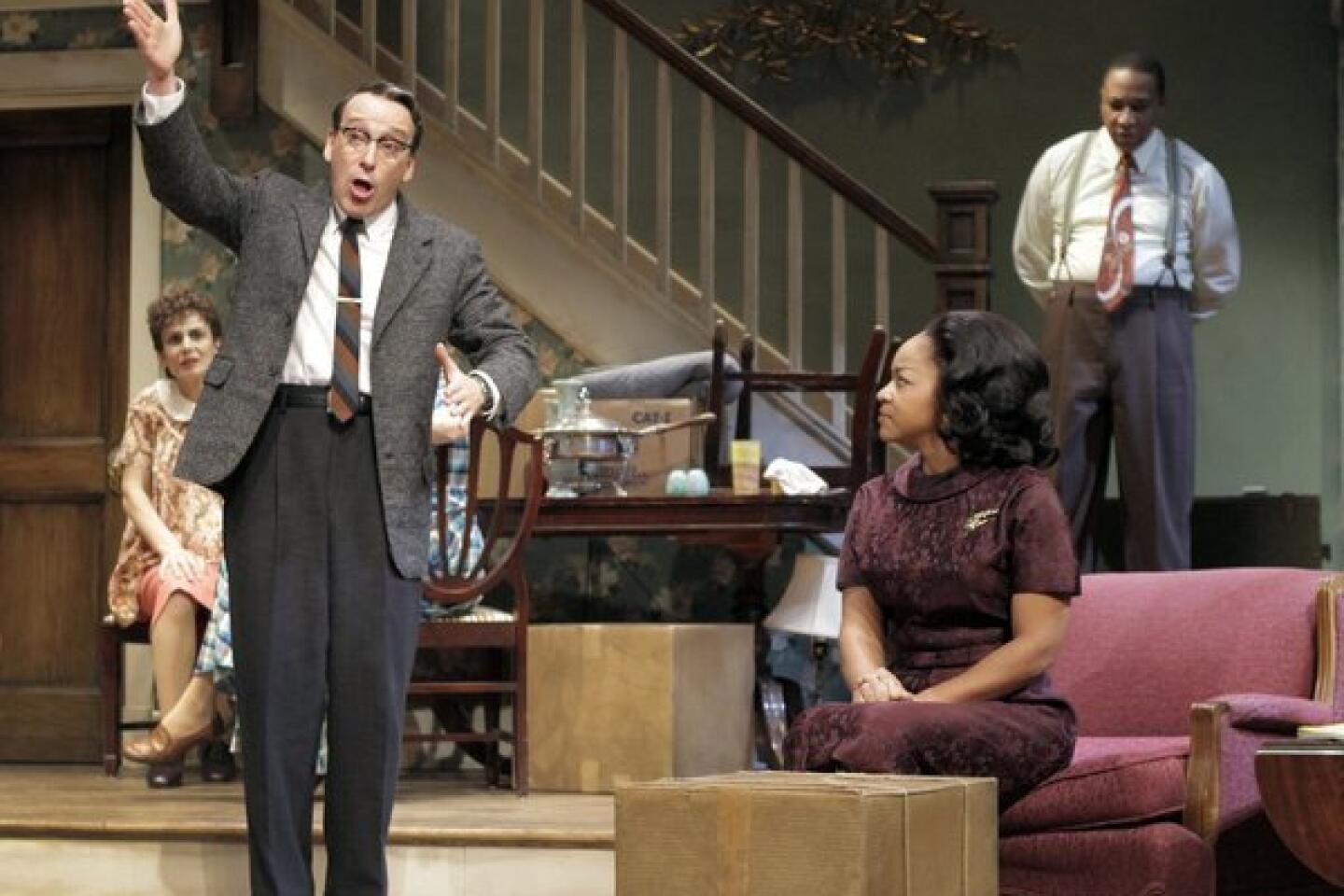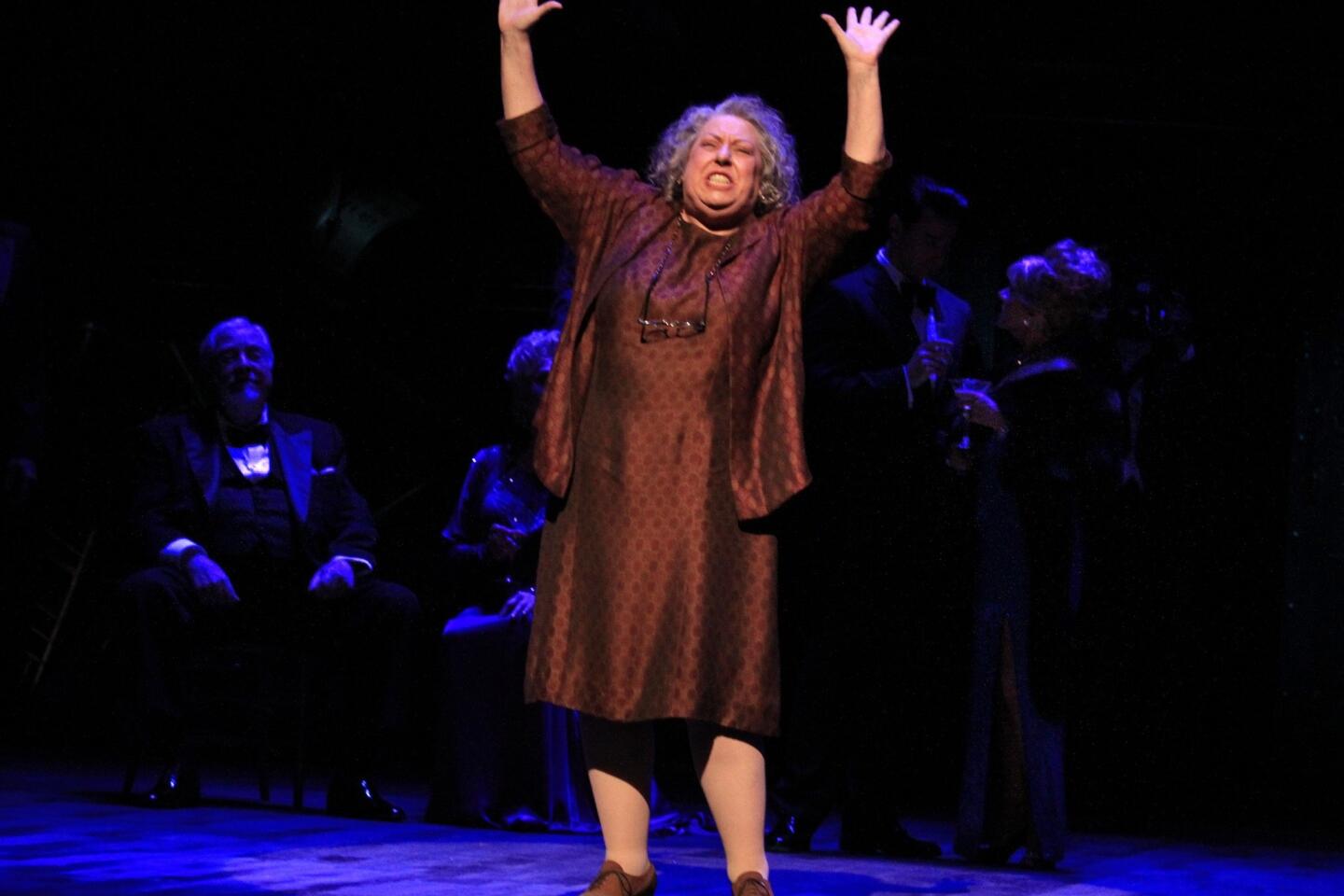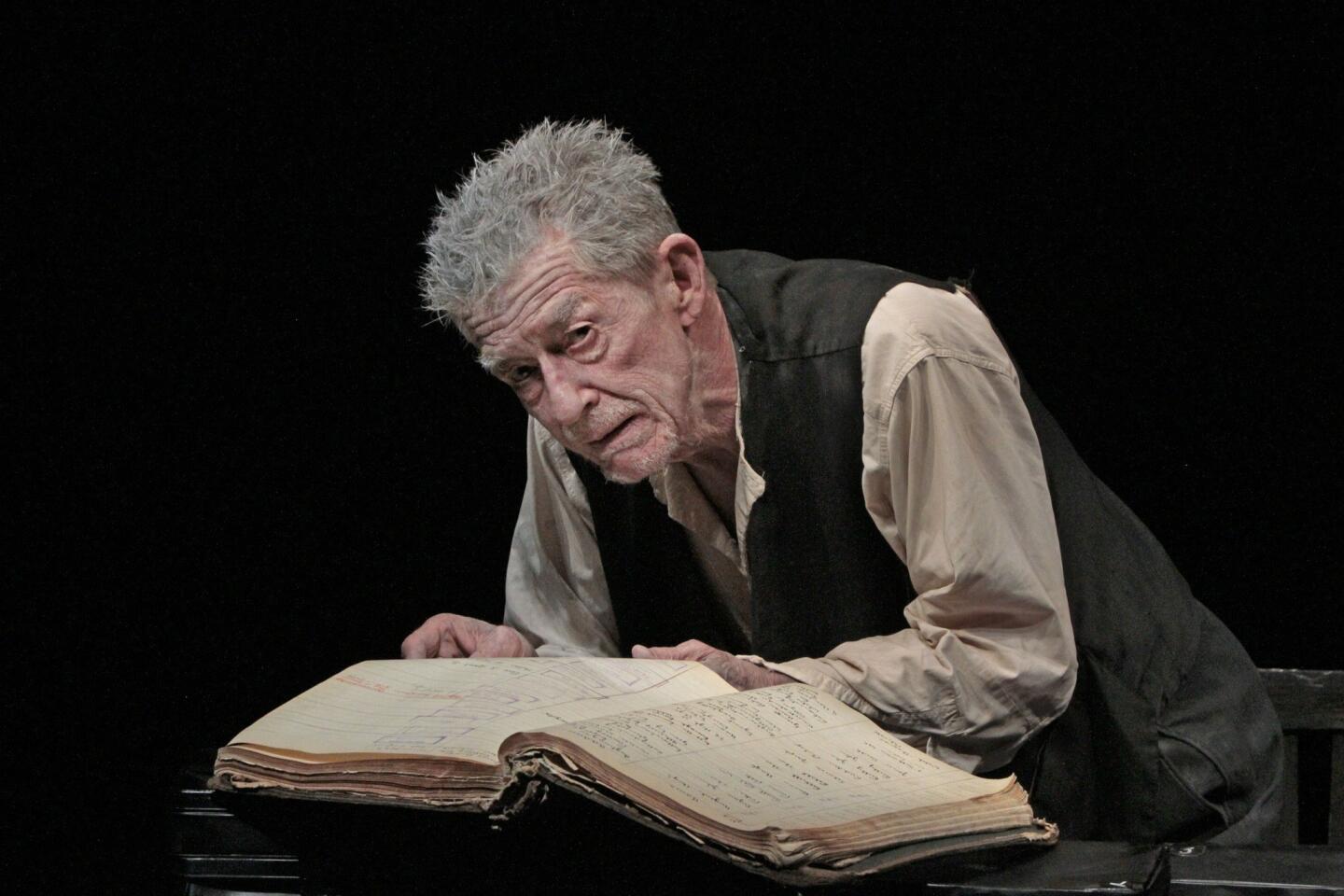Joy Womack tells a story of bribe request, struggles at the Bolshoi
- Share via
MOSCOW — Sipping tea in a cafe at the GUM department store overlooking the Kremlin, Joy Womack stared at Red Square and remembered arriving in Russia as a teen carrying huge hopes about her ballet career.
She recalled how she would stand in the middle of a circle on the paving stones in front of the State Historical Museum, a spot where Muscovites and visitors traditionally stop and make wishes.
First came her wish to be at the top of her ballet class. Another wish to graduate with honors. Then another to be accepted by the Bolshoi. All came true.
“I had so many opportunities to shine then,” said Womack, 19, a Santa Monica native. “My whole life dream came true.”
CRITICS’ PICKS: What to watch, where to go, what to eat
But those dreams were dashed in a difficult and emotional year with the Bolshoi, during which Womack said she struggled to make herself visible. The ballerina said she eventually quit after she was advised that she would have to pay bribes to obtain leading roles with the elite company.
“It was like breaking up with your first love,” she said.
Speaking in a mix of English and Russian, Womack claimed that a teacher suggested she get “a sponsor who could make gifts and presents on your behalf.”
“One person told me bluntly: ‘Joy, the starting fee, even for an appearance in small variations, is $10,000 just to show that you are serious,’” she said.
“I was told that one ballerina gave [someone in the company] a Mercedes-Benz only to get a part,” she recalled.
PHOTOS: Arts and culture in pictures by The Times
Womack, who studied at Santa Monica’s Westside Ballet, came to Russia in 2009 and did not speak the language. She was the first U.S. woman to graduate from a Russian choreography school and then land a contract with the famed Bolshoi.
Some members of the company have responded to Womack’s bribery allegations with indignation.
“I have worked with the company for 28 years now and I am not aware of such facts,” Alexander Petukhov, a soloist and a choreographer, told The Times. “If she knows something, let her name those people. Why smear the theater like that?”
But Natalia Vyskubenko, a longtime Bolshoi dancer, supported Womack’s account.
“Some people get parts and positions in one way, some in another,” Vyskubenko said in an interview. “What Joy is telling you is not far from reality.”
After graduating from Moscow State Academy of Choreography in June 2012, Womack was negotiating a contract with the Mikhailovsky Theater in St. Petersburg when she was offered a Bolshoi audition hosted by Sergei Filin, the artistic director of its ballet company. (Seven months later Filin was seriously burned with acid, an attack allegedly plotted by a Bolshoi dancer who is now standing trial.)
PHOTOS: Best in theater for 2012
Once in the company, she didn’t easily fit in: “I realized I was a kind of invisible person, a virtual dancer,” she said. One of her Bolshoi colleagues agreed.
“She was such a hardworking young woman and real fan and patriot of the Bolshoi from the very beginning,” said Vyskubenko, who Womack said helped her get her bearings in the theater.
“She was ready to do any work, to dance anything, but she was kind of lost and little noticed from the very start. Soon she practically turned into a kind of ghost on the premises.”
Womack had to compete in an experienced company dancing a rich and demanding repertoire.
Vyskubenko said that even though she had a contract to be a solo dancer, Womack couldn’t even break into the company’s corps, who were not willing to accept an overly energetic newcomer.
Every day, Womack recalled, she would come to the theater, attend class twice a day, rehearse various solo parts and sit. Days, weeks and months dragged by.
PHOTOS: LA Opera through the years
“I felt I was forgotten and unimportant to them,” Womack said. “I begged to be put in corps de ballet just to be able to dance on the stage. ‘No’, they would say. ‘You are sticking out, you are too different, you raise your leg too high, you do it way too emotionally.’”
She had to live on less than $500 a month in Moscow, one of the most expensive cities in the world, trying to eat her meals at the theater’s canteen to save money. And even then she didn’t always get paid. “They even forgot to pay my salary on time and would sporadically pay me something in cash when they realized I was there,” she said.
Corps dancers were making up to $2,000 a month, but she said she rarely got half that, with 30% tax deducted because she was a foreigner. Had she not been allowed to live in a friend’s apartment for free she wouldn’t have survived, she said.
Womack got a break Dec. 31, when for the first time — and as it turned out the last time — she danced a variation on the grand stage of the Bolshoi, winning the role of the Spanish doll in Tchaikovsky’s “The Nutcracker.”
“I was so high with elation that I did a triple fouette and jump instead of a double fouette,” she recalled. “My teacher was jumping in the wings, crossing me with his hand and almost shouting ‘Davai! Davai!’ [Go on! Go on!].”
PHOTOS: Hollywood stars on stage
Then came the January acid attack on Filin, which took him out of circulation and out of Russia for several months. She became, she said, invisible again.
In March, Womack persuaded Galina Stepanenko, then the acting ballet chief, to watch her dance her Cinderella rendition for “The Sleeping Beauty,” which had a four-show vacancy for the role.
Stepanenko told her she was “charming” and that the part was quite “fitting” for her but the role suddenly went to a friend of Filin’s wife, Womack said.
“I was frustrated and really desperate,” she said. “Never on any cast list. I was always on the reserve showing up for performances and sitting in the wings.”
Dancers and teachers started making jokes about her.
“Someone said that I was an American cheerleader with the company, dancing and noiselessly screaming ‘Yeah! Yeah!’ in the wings,” she recalled, her brown eyes tearing up. “It would have been funny if it were not so sad.”
One teacher said he couldn’t stand watching her doing nothing and managed to arrange for her to appear in the corps in “Ivan the Terrible” on April 20, her birthday. That was a birthday gift she would never forget, she said.
In the year that she was with Bolshoi, she danced the “Nutcracker” part once and made seven appearances in three different shows with the company corps.
PHOTOS: Google Doodles of 2013
Then the company went on a tour to London in August and she was left in Moscow. Womack tried for three weeks to meet with Filin, who by that time returned to Moscow after prolonged treatment in Germany.
“When I finally approached him with pleas to give me the lowest corps de ballet contract, he said to me: ‘You must be smarter, Joy. You must be sneakier. You should talk with other dancers and find out how it works here and what is the best way for you to be here,’” Womack said.
She quit the next day.
“It was a huge lesson for me,” she said. “They have so much money at the Bolshoi, they have the best building in the world, they have so many talented people. What they however need is attitude adjustment.”
Bolshoi leaders were not available to comment for this story.
When Womack’s complaints first emerged in the Russian media last week, the theater’s general director, Vladimir Urin, told the RIA Novosti news organization that if Womack were to file a legal complaint the company would help the police to investigate.
“If the facts are established in a legal way, the guilty persons must be punished accordingly,” he said.
Womack’s allegations came at a sensitive time for the Bolshoi. One of the company’s leading dancers, Pavel Dmitrichenko, is on trial for allegedly masterminding the acid attack on Filin.
When Filin appeared in court earlier this month and Dmitrichenko accused him of corruption — including giving dance roles away as favors — the ballet chief said: “I have never taken any money from artists either for the change in their status or for parts in productions.”
Womack is not planning to leave Moscow despite getting a lot of hate email and text messages, with one person writing to her that “it would be better if you committed suicide.”
Womack, the winner of the 2011 Youth America Grand Prix in Paris and 2013 Asian Grand Prix in Hong Kong, said she is rehearsing with a new company in Russia but is not ready to name it.
After finishing her tea, she walked in the chilly darkness of the November night to the middle of the wish-come-true circle near the State Historical Museum, closing her eyes, clenching her small fists and making her new wish.
More to Read
The biggest entertainment stories
Get our big stories about Hollywood, film, television, music, arts, culture and more right in your inbox as soon as they publish.
You may occasionally receive promotional content from the Los Angeles Times.













